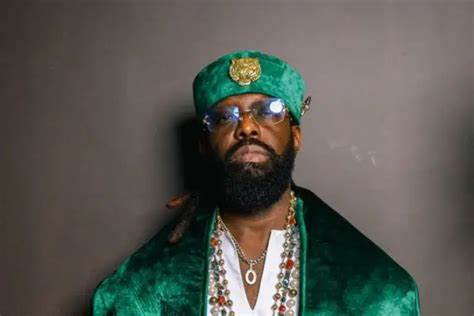Nigerian music star Timaya has spoken about the 1999 Odi massacre, a tragic event that deeply affected his hometown in Bayelsa State.
In a recent interview, the singer reflected on how the attack by the Nigerian Army destroyed lives, properties, and history in the small town of Odi.
He also shared how the event inspired his 2007 breakthrough hit, Dem Mama, and shaped his identity as a voice for the people.
A community torn apart
Odi, a quiet and largely Ijaw town in Bayelsa, became the centre of national attention in November 1999. Following the killing of 12 policemen by suspected militants near the area, the federal government ordered a military operation in the town. The Nigerian Army responded with a heavy force.
The singer, born Inetimi Alfred Timaya Odon, described the destruction that followed as deeply personal. His mother owned a bakery in Odi, and the town had once been a vibrant place of business and community life.
“It was part of me, too,” he said. “My mum had a bakery in the village. She was supplying bread to all the nearby villages. That was the same village that got attacked.”
Read Also: Herdsmen destroying farmlands in Bayelsa – Singer cries out
‘Rema is leader of new generation of Nigerian musicians’
‘They burnt the town down’
The military invasion of Odi resulted in widespread destruction. Homes, businesses, and public buildings were burned down. Eyewitness reports and human rights groups later stated that hundreds of civilians may have been killed, though the exact number has never been confirmed officially.
Timaya recalled how painful it was to witness the loss. “It’s very touching,” he said. “We lost lives. We lost a lot of things. We lost our history.”
He criticised the government’s approach at the time, saying, “You know when the government just says, ‘Go and shoot these people down.’”
Timaya turns pain into music
In 2007, Timaya turned the tragedy into art. He released Dem Mama, a song that told the story of the Odi massacre. The track was raw, emotional, and honest. It became a hit and helped launch his music career.
“I sang about it,” he explained. “That was the most I could do. I told the story—how they sent the military to burn down the village. I narrated my story.”
Through the song, Timaya gave a voice to those who had none. The song connected with many Nigerians who remembered the tragedy or had faced similar losses.
Honoured as the voice of the people
Because of Dem Mama and his outspoken stance on the massacre, Timaya was later given a traditional title. He became the “Egberi Papa 1 of Bayelsa.” In the Ijaw language, this means “the mouthpiece of the people.”
“I became the voice,” he said. “That’s why they gave me the title. Egberi Papa 1 of Bayelsa State. That means I speak for the people.”
The title became part of Timaya’s public identity, and he proudly carries it in his music and message. For him, it is more than just a name. It is a responsibility.
A memory that lives on
The Odi massacre remains a dark chapter in Nigeria’s recent history. Many Nigerians still seek justice for what happened. For Timaya, it is a memory that continues to shape his life and music.
By speaking out and turning his pain into art, he has helped keep the memory alive. He believes telling the story was his way of contributing to history and standing up for his people.
“It helped me to make an impact,” he said. “I became a voice.”
A call for peace and justice
Timaya’s story is a reminder of the human cost of violence. His words highlight the need for peace, justice, and better handling of conflicts in Nigeria. While the scars of Odi remain, voices like his ensure that the victims are not forgotten.
As he continues to make music, Timaya carries the weight of his past and the hopes of a people still healing.



